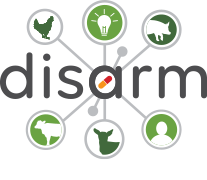Support the calf to obtain better vaccination results
Farms specialized in bull calf rearing from a very young age often experience high frequencies of respiratory diseases. Specially during the first month after arrival. Calves are often exposed to radical changes and challenges in this period.
Vaccination could be a useful tool to enhance immunity. In other cases, vaccination seems to weaken the calves and trigger outbreaks of disease, often when calves are stressed. Whenever vaccinating, try to create the best possible conditions for the calf and minimize factors negatively affecting their immunity:
- Opt for short transport time (max. 1-2 hours) to limit dehydration, hypothermia and exhaustion
- Avoid mixing calves from different farms on the same truck
- Insert calves in a clean box
- Keep calves in small groups – preferably in pairs – at least for the first 6 weeks
- Avoid mixing calves of different origin in the same box
- Segregate groups of calves by solid walls or panels
- Make sure all calves have easy access to fresh water – preferably lukewarm water from a bucket or trough
- Feed sufficient amounts (minimum 6-7 liters/ day) of good quality milk replacer
- Start milk feeding on the day of arrival
- Secure good air quality and avoid draught
- Avoid moving, mixing, feeding changes and other negative factors 3-4 days before and after vaccination
Intra-nasal vaccines can be applied at the day of arrival. Let other vaccinations wait until the calves are in a positive energy balance (e.g. from 2 weeks after arrival).
